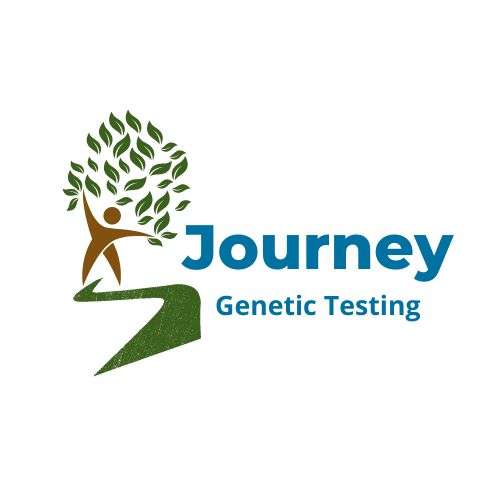Legal DNA Testing
Unveiling Truth With Precision And Integrity
With a legal DNA test, science meets truth and integrity. Seeking clarity and authenticity in matters of paternity or family relationships? Legal DNA testing stands as the beacon of accuracy. Understanding the essential aspects of legal DNA testing helps to shed light on its importance in individual lives. We will also explain the process of DNA testing, and the difference between legal and at-home tests.
Unraveling the Essentials Of A Legal DNA Test
Journey Genetic Testing provides a legal DNA test that not only provides answers, but does so in a legally sound manner. Legal DNA testing is precisely that – a process that adheres to strict guidelines and standards, ensuring the credibility of its results. There are two main requirements for a legal DNA test: a strict chain of custody and AABB accredited lab processing.
A chain of custody ensures integrity in the DNA sample collection and handling. It is a detailed record documents the identity of those being tested, and the transfer of the samples for processing. A lab meeting AABB requirements stands as a pillar of truth to those who need accurate answers. The process involves collecting DNA samples adhering to their strict guidelines, ensuring both accuracy and reliability in processing.
When is Legal DNA Test Needed?
You might need Legal DNA testing depending on your situation. You may need to prove paternity for legal matters. It can also be used to resolve inheritance disputes. The U.S. government requires a legal DNA test for most immigration cases. This test can also be used in adoption proceedings. There are many more uses, of course. In all cases, it is a path to relationship validation when legal documentation is required.
Types Of Legal Testing We Offer
If you want to learn more about any of these legal options, please click on the test of interest. You will be taken to an information page for more details.
- Paternity Test – A father and child to establish legal rights and responsibilities
- Sibling DNA Test – Full siblings or half siblings to prove if they have the same father or not
- Grandparent DNA Test – One possible grandparent and a grandchild to verify they are related
- Avuncular DNA Test – An aunt or uncle tests with the child to prove paternity indirectly
- Maternity Test – A mother and child to prove the relationship due to IVF or a missing child
- Y-Chromosome Test – Two or more males to see if they share the same male lineage
- Twin Zygosity Test – Identical twins when there may need to be proof for medical reasons
- Individual DNA Profile – A legal record of a person’s individual DNA for identifying them
A Legal DNA Test vs. At-Home DNA Test
Legal DNA Test for Paternity or Relationships
A legal test follows strict guidelines and legal requirements. It requires an appointment with an authorized DNA collector, and photo identification. The chain of custody makes sure the results are defensible in legal proceedings. One important thing about legal testing is DNA collection supplies are never in the possession of the person being tested. This regulation is so we can know the samples were not tampered with. Legal DNA results must also be notarized to be court admissible.
At-Home DNA Test for Paternity or Relationships
The main difference is that an at-home DNA tests does not have the strict oversight of legal tests. They are usually not able to be used for legal purposes because of this. Our at-home DNA tests follow the same process as a legal DNA test, and the results are guaranteed 100% accurate.
If You Need Legal Testing
Step 1: Order a test online or call us at 1-855-362-5224
When you order, we will need the legal names, dates of birth, and zip code of those who are being tested. You should also have an idea when you are wanting to have a collection appointment. The zip code helps us to find the closest authorized DNA collector to your location.
Journey Genetic Testing, with our network of over 3,500 collection sites in the U.S.A., will set an appointment at a convenient location. You will then be provided with written directions and instructions for your appointment. There are no appointment fees as they are included in the costs.
Step 2: Go To Your DNA Sample Collection Appointment
At the collection site, a trained professional follows AABB guidelines to collect samples. Cheek swabs are commonly used for this non-invasive process. As samples collected and sent, detailed paperwork makes sure the chain of custody is created. This helps make the results useable whenever legal proof is needed.
Step 3: Get Your DNA Results
Your results will be ready in just 1-2 business days after your samples arrive at the lab. They are always examined twice to make certain they are accurate, and they are signed and notarized. They arrive in PDF that can be printed as often as you like and that is legally admissible. If you want us to, we can also send a copy of the results to you.
Our legal DNA test is the best way to learn the truth about a family relationship. It offers a guaranteed accurate, legal way of proving paternity. If you’re seeking fact based answers, consider our legal DNA test.
This article is meant for information only and doesn’t give legal advice. For accurate and specific details, please consult your legal expert.

